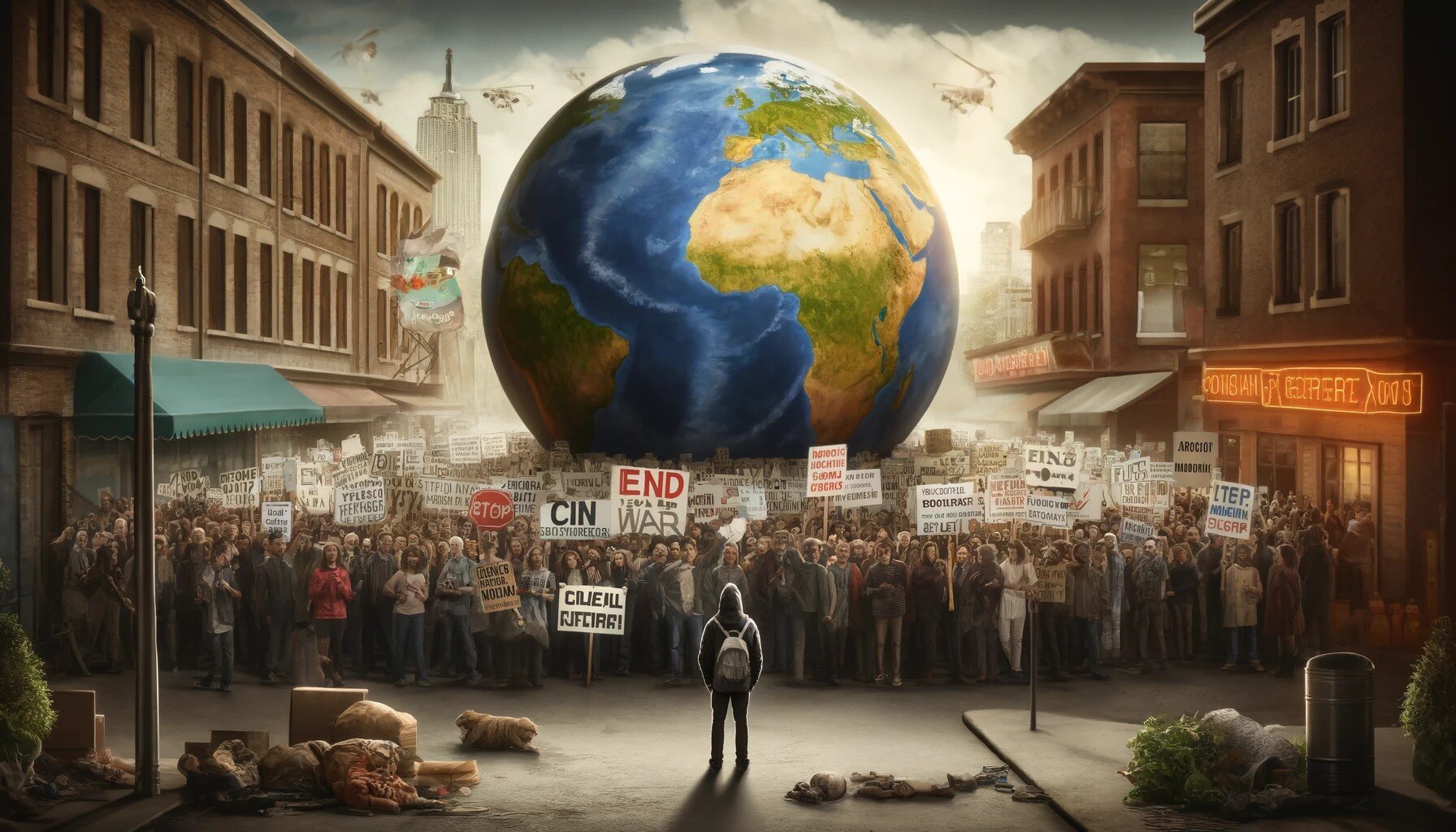When Modern Protests Turn Advocates into Houdini
Protesting has always been a powerful tool for bringing about social and political change. Historically, protests have centered around deeply serious issues, galvanizing communities to stand against injustices. However, the nature and focus of protests have shifted over the decades. This shift is not just in the causes championed but also in the methods and contexts of these demonstrations. Let’s explore how protest movements have evolved, why modern protests sometimes miss the mark, and why it’s essential to prioritize serious community issues.

The Weight of Historical Protests
In the 1960s, protests were driven by monumental issues such as civil rights and opposition to the Vietnam War. The civil rights movement, for instance, was a response to systemic racial injustices that permeated American society. Leaders like Martin Luther King Jr. and events such as the Selma to Montgomery marches of 1965 led to significant legislative changes, including the Civil Rights Act of 1964 and the Voting Rights Act of 1965. These protests were not just about vocal opposition; they were about demanding fundamental human rights and equality.
Similarly, the Vietnam War protests in the late 1960s and early 1970s were responses to the draft and the U.S. involvement in a controversial conflict overseas. While these protests did not immediately end the war, they significantly influenced public opinion and political pressure, ultimately contributing to the U.S. withdrawal from Vietnam in 1973 and the end of the draft. These movements showcased the power of collective action focused on serious, immediate issues affecting millions.
The Pitfalls of Modern Protests
Fast forward to today, and the nature of protests has changed. While there are still significant causes worth protesting, such as family court reform and human trafficking, modern protests often lack the focus and gravitas of their predecessors. One major issue is the tendency to protest international issues, such as wars overseas, without addressing pressing local problems.

Protesting wars in distant lands might seem noble, but these actions often fail to bring about the desired change. For instance, protests against the Iraq War in the early 2000s were widespread but did little to alter the course of U.S. policy. If protests in the 1960s could not stop the Vietnam War, it’s worth questioning the effectiveness of similar modern efforts. Moreover, these protests can create turmoil within local communities without addressing the immediate injustices that protesters face daily.
Neglecting Local Injustices by Modern Protests
One of the most glaring issues with contemporary protests is the neglect of serious local problems. While activists gather to protest global issues, they often overlook the injustices within their own communities. This neglect can be seen as a form of cowardice, avoiding the tougher battles that hit closer to home. Protesting an international issue can sometimes be a way to avoid confronting local corruption, crime, and systemic failures that require immediate attention and action.

As someone who has been protesting alone for justice within my community, I find it disheartening that modern protesters often seek the safety of numbers for their causes. I’ve stood my ground against serious injustices, facing threats and challenges without the backing of a large group.
My cause is about defending parental rights for all families the USA, and for my children, fighting against corrupt practices within our own systems. This is where respect and support should be directed towards those of us who stand up against local injustices with determination and resilience.
A Call for Respect and Prioritization in Modern Protests
To the modern protesters, I say this, respect those who have come before you and understand the gravity of their battles. Instead of trying to change the narratives of past protests, focus on addressing the immediate pressing issues within your reach. Support the efforts of individuals like myself who have been tirelessly fighting for justice.
Your efforts should start by resolving the most critical and immediate cases of injustice. Only then can we build a stronger and united front for broader causes. If after addressing state issues, and you still have unresolved grievances, I will stand with you. But until then, prioritize and respect the protest I bring to you.
Rather Houdini Disappear, or Support XS Managers?
Protests have always been a vital part of social and political change, but their focus and effectiveness have shifted over the years. While protesting international issues might seem impactful, it often overlooks the immediate injustices within our communities. Modern activists should honor and respect the efforts of those who have been fighting these local battles and prioritize resolving these issues first. Only then can we create a united and effective movement for broader change.

Remember, change starts at home and with yourself. Respect those who have paved the way and focus on the injustices within your grasp. Together, we can build a more just and equitable society.


Comments
3 responses to “Modern Protests Failure to Prioritize Local Injustice Over Global Issues”
[…] the dynamic world of activism, the effectiveness and impact of protests critically depend on the foundational step of selecting […]
[…] as we navigate our roles as digital influencers or entrepreneurs, we carry these lessons with us. Each of us has a platform, no matter how small, we all can advocate for change. The […]
[…] is the resistance from within, where veteran activists might feel sidelined by newer, perhaps more radical approaches. To overcome this, there needs to be an open, ongoing dialogue about the value of experience and […]